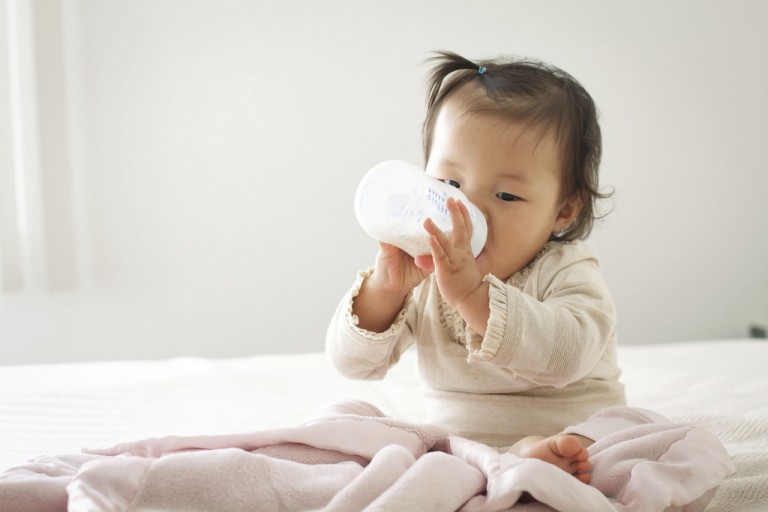
Thumbsucking, baby bottle tooth decay — there are a plethora of myths, rules, and “must-do” things people, books, and the media often try to tell you about parenting and how you should be taking care of your child. This isn’t just another blog post about parenting, but a look at the importance of children’s dental health. Practicing good dental habits in childhood will allow adult teeth to develop correctly.
When your child’s first tooth appears, talk to your dentist about scheduling his/her first dental appointment. Remember to use a children’s toothbrush and monitor your children’s brushing up to age 6 to make sure they aren’t swallowing an excessive amount of toothpaste. High levels of fluoride can lower the amount of calcium and magnesium in the body.
Meanwhile, here are answers to the questions we often hear from parents about their children’s teeth:
Baby bottle tooth decay commonly refers to the build-up of decay, or bacteria, on the upper front set of teeth. This decay is the result of a child bottle use or the transfer of saliva bacteria from parent to child. Fortunately, there are simple ways to avoid this common dental issue with children. Below are just a few of the many things you can do for your child to prevent baby bottle tooth decay.
Not only does thumbsucking and pacifiers make your baby feel secure, but it can also soothe them and even make them fall asleep. Although thumbsucking comes quite naturally to children, sucking on thumbs, pacifiers or other objects may lead to serious oral problems for your child. As a result of aggressive, frequent thumbsucking, changes on the roof of the mouth as well as growth and alignment issues can occur.
You should always contact your dentist if you see a change in your children’s primary teeth. Children typically stop thumbsucking between two and four years old. Pacifiers often prove to be an easier habit to break than thumbsucking.
The following are just a few simple tips and tricks to help your child in preventing dental problems caused by thumbsucking or a pacifier.
Always encourage your child to start off making good dental health choices that will carry on into their adult years. Taking care of your baby’s teeth and giving them a bill of good oral health is one of the best things you can do for them. Oral health begins as a baby, and good oral health leads to bigger smiles and a happier child!